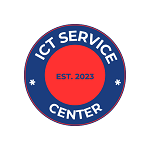The 5 challenges in ICT include cybersecurity threats, data privacy concerns, rapid technological advancements, digital divide, and outdated infrastructure. These challenges hinder the seamless integration and use of information and communication technology in various sectors.
Information and Communication Technology (ICT) has revolutionized the way we interact, communicate, and do business. However, it also presents a myriad of challenges that organizations and individuals need to navigate. From the ever-evolving cybersecurity threats to the need to bridge the digital divide, the ICT landscape poses unique obstacles.
Understanding and addressing these challenges are crucial for leveraging the full potential of ICT for personal and professional advancement. We will delve into the five key challenges faced within the realm of ICT and explore potential strategies to overcome them.
Understanding The Role And Importance Of ICT
Understanding the role and importance of ICT in today’s digital landscape is critical for individuals and businesses alike. Information and Communication Technology (ICT) has revolutionized the way we communicate, conduct business, and interact with the world around us. However, there are several challenges that accompany the widespread adoption of ICT. In this blog post, we will explore five key challenges in ICT and how they impact various aspects of our lives.
Advancements In Communication And Connectivity
The rapid advancements in communication and connectivity have transformed the way we interact with one another. From the rise of social media platforms to the proliferation of mobile devices, ICT has made it easier than ever to stay connected. However, this constant connectivity also brings about challenges such as digital divide, privacy concerns, and information overload. Finding a balance between staying connected and safeguarding one’s privacy is a challenge that individuals and organizations continue to face in the digital age.
ICT’s Influence On Business And Economy
In the realm of business and economy, ICT plays a pivotal role in driving innovation, efficiency, and growth. The digitization of processes, automation of tasks, and the increasing reliance on data analytics have brought about significant opportunities for businesses to thrive. However, this digital transformation also presents challenges such as cybersecurity threats, data breaches, and the need for upskilling the workforce. Navigating these challenges is essential for businesses to harness the full potential of ICT while safeguarding their operations and data.
Identifying Vulnerabilities And Threats
The field of Information and Communication Technology (ICT) poses several challenges in the identification of vulnerabilities and threats, which are crucial for ensuring the security and integrity of digital systems. It is essential to address these challenges proactively in order to mitigate potential risks and safeguard sensitive data from unauthorized access and exploitation.
Data Breaches And Privacy Concerns
One of the major challenges in ICT is the risk of data breaches that can compromise sensitive information, leading to financial loss and reputational damage for individuals and organizations. Privacy concerns regarding the unauthorized collection and misuse of personal data further exacerbate these challenges, highlighting the need for robust security measures and compliance with data protection regulations.
Importance Of Cybersecurity Measures
The importance of cybersecurity measures cannot be overstated in today’s digital landscape. With the increasing sophistication of cyber threats, implementing effective cybersecurity measures becomes imperative in order to detect, mitigate, and respond to potential security incidents. This includes measures such as encryption, firewalls, intrusion detection systems, and regular security audits to ensure that vulnerabilities are identified and addressed proactively.
Addressing Compatibility And Integration Challenges
Addressing Compatibility and Integration Challenges in ICT is crucial for the seamless operation of various systems and technologies. Businesses often encounter a multitude of obstacles when aiming to ensure that different ICT components can work together harmoniously. Let’s delve into the specific hurdles and potential solutions that can alleviate these challenges.
Ensuring Seamless Data Exchange
One of the primary challenges in ICT integration is the smooth exchange of data between disparate systems. This demands a meticulous understanding of various data formats, structures, and protocols. Without an effective strategy in place, data silos can emerge, impeding real-time access to critical information and hampering decision-making processes.
Resolving Communication Protocol Conflicts
ICT environments often involve diverse communication protocols, such as TCP/IP, HTTP, and FTP. The clash between these protocols can lead to integration complications, hindering the establishment of a cohesive network infrastructure. Resolving these conflicts requires proactive measures, including protocol normalization and the implementation of intermediary gateways.
Understanding The Limitations Of Infrastructure
Understanding the limitations of infrastructure is crucial for effectively addressing the challenges in the field of Information and Communication Technology (ICT). Recognizing the constraints that exist within the infrastructure can help organizations and professionals in the ICT sector to devise more efficient and sustainable solutions.
Bandwidth And Connectivity Limitations
Bandwidth and connectivity limitations pose significant challenges in ICT. In many regions, limited bandwidth can hinder the speed and efficiency of data transmission. This can impact the performance of various ICT systems including communication networks, cloud services, and remote applications. Moreover, poor internet connectivity in certain areas can impede access to essential online resources, hindering the development and deployment of robust ICT solutions.
Scalability Challenges In ICT Systems
Scalability challenges are prevalent in ICT systems. As technological requirements and user demands evolve, ICT systems must be capable of adapting and expanding to accommodate these changes. However, architectural constraints and technical barriers may limit the scalability of the existing systems, posing obstacles to the seamless integration of additional resources and services.
Navigating The Complexities Of ICT Regulations
In the rapidly evolving world of technology, businesses face a myriad of challenges when it comes to navigating the complexities of ICT regulations. From data protection and privacy laws to compliance with industry standards and regulations, companies must stay abreast of the ever-changing landscape of regulatory requirements in order to ensure the security and integrity of their ICT systems.
Data Protection And Privacy Laws
Data protection and privacy laws are critical components of ICT regulations that companies must contend with. The implementation of stringent regulations such as the General Data Protection Regulation (GDPR) in the European Union has placed a heavy emphasis on protecting the privacy and personal data of individuals. Organizations are required to implement robust measures to safeguard sensitive information, such as encryption protocols, access controls, and data retention policies, to ensure compliance and mitigate the risk of data breaches.
Compliance With Industry Standards And Regulations
Another significant challenge in ICT is ensuring compliance with industry standards and regulations. Various sectors, including finance, healthcare, and telecommunications, have distinct regulatory frameworks that govern the use and management of ICT infrastructure. Adhering to these standards requires significant investment in resources and expertise to ensure that systems and processes meet the necessary requirements, such as ISO certifications, HIPAA compliance, or PCI DSS adherence, enabling companies to operate within the parameters of legal and regulatory restrictions, thereby safeguarding their reputation and maintaining customer trust.

Asked Questions Of What Are The 5 Challenges In ICT ?
What Is The Role Of Technology In The ICT Industry?
Technology plays a crucial role in the ICT industry, driving innovation and enabling efficient communication and data management. It helps in creating solutions for complex challenges and improving productivity.
How Does ICT Impact Businesses And Organizations?
ICT has a profound impact on businesses and organizations, enhancing their operations, decision-making processes, and customer interactions. It facilitates seamless communication, data analysis, and automation of tasks, leading to improved efficiency and competitiveness.
What Are The Security Challenges In ICT ?
Security challenges in ICT include data breaches, cyber-attacks, and privacy concerns. Ensuring robust cybersecurity measures, constant monitoring, and regular updates are essential to mitigate these risks and protect sensitive information.
Conclusion
In the fast-paced world of ICT, there are certainly challenges to navigate. From cybersecurity threats to ever-evolving technology, businesses must stay vigilant. Embracing innovation, fostering collaboration, and investing in employee development are paramount. Addressing these challenges head-on will position businesses for success in the digital age.

